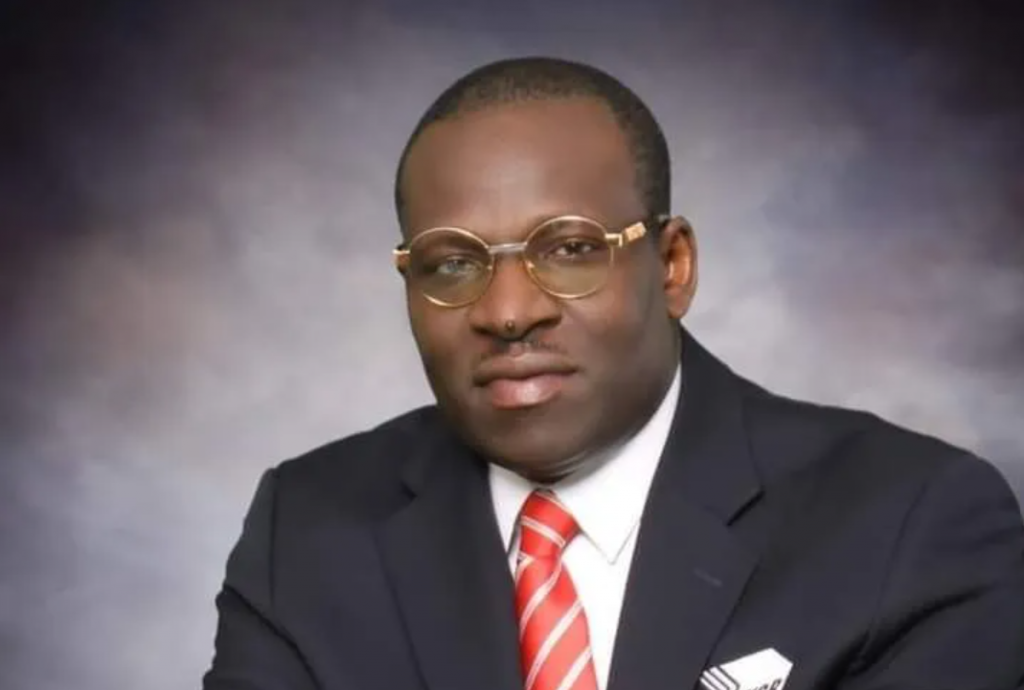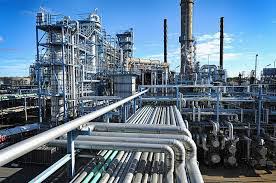Oil & Gas
Reps to Probe Petrol Scarcity

The House of Representatives has tasked its Committees on Petroleum Resources (Downstream and Midstream) with investigating the recent resurgence of fuel queues at service stations nationwide, aiming to find sustainable solutions to the sector’s persistent challenges.
This decision followed the adoption of a motion of urgent public importance presented during Tuesday’s plenary by Mr. Bill Osawaru, the representative for Orhionmwon/Uhunmwode Federal Constituency in Edo State.
The motion, titled “Urgent Need to Carry Out a Legislative Forensic Investigation into the Challenges Affecting the Downstream and Midstream Petroleum Sectors in Nigeria and Other Related Matters,” received overwhelming support from the lawmakers.
In leading the debate, Osawaru highlighted the recurrence of fuel queues, allegations of high petrol prices, and the unavailability of fuel stock for domestic refineries. He also pointed to disruptions in the distribution of petroleum products.
The House subsequently directed the committees to conduct a comprehensive legislative forensic investigation into these issues. Their mandate includes examining the resurgence of fuel queues, the high cost of PMS, fuel stock shortages, distribution disruptions, unfair subsidization practices, and issues within the Pro Forma Invoice System.
Additionally, the committees will probe the indiscriminate issuance of licenses, importation practices, the return of PMS price interventions, product unavailability, refinery rehabilitation delays, and unethical activities at petrol depots.
The committees are also tasked with investigating the presence of middlemen in trading, licensing irregularities, lack of laboratories for checking adulterated products, the influx of contaminated products, non-domestication of crude marketing profits, abuses within the PFI regime, and the importation of products already produced locally.
Further areas of investigation include the importation of substandard products and high-sulphur diesel, the sale of petroleum products below market value, regulatory failures by the NMDPRA and NUPRC, lack of support for local refiners, and the issuance of import licenses despite local production.
Osawaru emphasized the motion’s relevance, noting allegations of unfair subsidization and racketeering in the sector, favoritism in licensing, and the negative impact of middlemen on domestic crude supply. He also criticized the Nigerian Midstream and Downstream Petroleum Regulatory Authority and the Nigerian Upstream Petroleum Regulatory Commission for their regulatory failures, which he said contributed to the current scarcity.
The committees are expected to report back to the House within four weeks for further legislative action.
Environment
One dead, 13 injured in Lagos gas explosion at fast food restaurant.

The Lagos State Police Command on Saturday confirmed the death of a 20-year-old female staff and injuries to 13 others following a gas explosion at a fast food restaurant in the Ajah area of the state.
Zagazola Makama reports that the incident occurred at about 3:00 p.m. on July 19, at No. 5 Spring Garden Estate, Orchid Road, Ajah.
According to a police sources, the restaurant, owned by one Uchechukwu Godwill Villason, was gutted by fire caused by a suspected gas leak, leading to a massive explosion and subsequent inferno.
A police source at the Lagos State Command said: “Thirteen staff members sustained varying degrees of burns during the incident and were immediately rushed to the General Hospital, Gbagada, for medical treatment.”
Tragically, one of the victims, identified as Kingsley Promise, a 20-year-old female and native of Akwa Ibom State, succumbed to her injuries while receiving treatment.
Police detectives from the division visited the scene for documentation and evidence collection. The affected hospital was also visited, where the deceased’s body and the condition of the injured victims were assessed.
The remains of the deceased have been evacuated to the Mainland General Hospital morgue, Yaba, for autopsy, while investigation into the cause of the explosion is ongoing.
The command advised business owners handling gas-powered appliances to ensure regular maintenance and safety checks to avert similar tragedies.
Oil & Gas
NSCDC Uncovers Illegal Crude Oil Reservoir in Ondo

The Nigeria Security and Civil Defence Corps (NSCDC) in Ondo State has uncovered an illegal crude oil reservoir hidden in a forest in Obe-Akingboye, Ilaje Local Government Area.
NSCDC spokesperson, DSC Daniel Aidamenbor, confirmed this in a statement on Tuesday, revealing that the discovery was made during a joint operation with the Nigerian Army and TANTITA Security Service.
The operation took place on Sunday at about 2:12 p.m., but no arrests were made as the suspects had already fled.
Ondo State Commandant, Oluyemi Ibiloye, has warned against illegal dealings in petroleum products, vowing that offenders will face the full force of the law. He also reaffirmed the NSCDC’s commitment to protecting national assets, especially in the solid minerals sector.
Oil & Gas
Niger Delta Coalition Pressures NNPC to Operationalize Port Harcourt Refinery

Some lawyers from the Niger Delta have issued an ultimatum to the Nigerian National Petroleum Company Limited (NNPCL) and its Managing Director, Mele Kyari, to ensure the Port Harcourt Refinery becomes operational before the end of September, as previously promised.
According to the lawyers, the refinery’s non-functionality has led to an energy crisis, with oil-producing communities forced to purchase fuel at higher rates than other parts of the country.
Under the auspices of the Coalition of Niger Delta Youth on Energy Reforms and Transparency in the Oil and Gas Sector, they said this is a deliberate attempt to further impoverish the Niger Delta region.
In a statement co-signed by Dickens A. Opu and Werigbelegha Zinake, the lawyers expressed concerns over the refinery’s proposed conversion into a blending plant for substandard petroleum products from Russia, arguing it would expose the region to harmful chemicals and environmental pollution.
Mele Kyari had earlier stated that the Port Harcourt Refinery would commence operations by December 2024, with the Warri and Kaduna refineries following suit in the first quarter of 2024 and by the end of 2024, respectively.
However, the lawyers demand immediate action, citing the region’s significant contribution to the country’s revenue.
“We wish to state that we have it on good authority that the Port Harcourt refinery si being packaged to become a blending plant where substandard petroleum products from Russia will be mixed with chemicals and sold to the Niger Delta people. This is not only acceptable, it also shows a gross disdain for the Niger Delta people,” the statement said.
“Those in authority do not care about the negative impact of this plan on the livelihood of the Niger Delta people. The Niger Delta people would be subjected to untold hardship by paying more for petroleum products, and also the attendant consequence in other critical sectors of the Niger Delta economy.
“The economic value chain around the operations of the Port Harcourt refinery would be greatly disrupted and bring about a regime of hopelessness and the resort to crime and criminality to make ends meet. Let us not forget that the level of crime and criminality of proportional to the economic standing of the people.
“The move by the Mele Kyari led NPCL to convert the Port Harcourt refinery into a blending plant for substandard petroleum products from Russia and other European destinations comes with the attendant health implications for the people of the region.
“The people would indeed be exposed to harmful chemicals from environmental pollution and degradation from the waste products that would be released into the environment as a consequence.
The rot in the administration of the oil and gas sector in Nigeria is phenomenal.
“The Mele Kyari-led NNPCL has taken the lack of transparency and accountability to another height. The country has lost huge revenues to the activities of the cartel that is aided and abetted by the Mele Kyari-led NNPCL.
“We are tempted to say that the Niger Delta people have been slated for extinction. The Coalition of Niger Delta Youth On Energy Reforms and Transparency in the Oil and Gas Sector frowns at such a disposition which is a dangerous trend that must be halted and addressed with a sense of urgency.
“The Niger Delta people are an important contributor to the revenue generation of the country and as such it must not be treated with disdain and levity.”
The Niger Delta lawyers demand that the federal government ensures the Port Harcourt Refinery becomes operational before the end of September, institutes reforms in the oil and gas sector prioritizing oil-producing communities, and investigates the administration of the oil and gas sector under Mele Kyari’s leadership.
According to them, the federal government’s prompt intervention is crucial to halt the dangerous trend of neglect and ensure transparency and accountability in the sector, adding that the socioeconomic implications of inaction will be severe with potential increases in crime and criminality.
The lawyers urge the relevant authorities to act in the best interest of the Niger Delta people and the country.
The statement added: “We are therefore calling on the federal government to look into the plight of the Niger Delta people and do all that is necessary to improve the lot of the people through the entrenchment of transparency and accountability in the administration of the oil and gas sector ni the country.
“The first step ni this regard is to ensure the full functionality of the Port Harcourt refinery and other refineries in the country. The second step is to institute reforms in the administration of the oil and gas sector in the country with emphasis on the oil and gas-producing communities that are home to the major source of revenue for the country.
“The third step is to institute a probe into the administration of the oil and gas sector by the Mele Kyari-led NNPCL. We are calling on the relevant authorities to urgently address the lingering issues in the oil and gas sector in Nigeria. The socioeconomic outlook of the country is worrisome and the country does not have the luxury of time as the situation in the country is getting grimmer by the day.
“The time to act is now and it is our firm belief that the relevant authorities would act ni the best interest of the Niger Delta people and the country at large.
Thank you and God bless.“
-

 Uncategorized5 years ago
Uncategorized5 years agoFG, states urged to harness flooding for ranching, others with technology – Agbaje
-

 Headlines10 years ago
Headlines10 years agoBreaking: EFCC seals Borno House of Assembly, as Hon members take to their heels
-

 News11 years ago
News11 years agoNigeria Security Operatives Stage Manhunt For Homosexual Perpetrator
-

 News9 years ago
News9 years agoHow 21-year-old Girl fled community over accusation of lesbianism
-

 News10 years ago
News10 years agoYobe Gov Moves Against Deputy
-

 Opinion7 years ago
Opinion7 years ago7 signs she has friend zoned you
-
Technology4 years ago
Online job placement company headhunts women
-

 Headlines10 years ago
Headlines10 years agoBorno Dep Gov Abducts Another Church Leader





